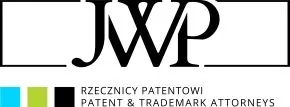The resolution of the patent dispute between Nokia and Amazon serves as a textbook example of how effective innovation protection can turn technology into a shield, a sword, and a currency - all at the same time. For large corporations, this is not just a legal matter - it is a strategic tool in high-stakes market competition, where intellectual property becomes a critical asset in gaining and maintaining competitive advantage.
Nokia, acting simultaneously in several jurisdictions, pursued a strategy of "litigation as leverage" - applying pressure not only in the courtroom, but above all at the negotiating table. This is a calculated game, with legal positioning as a form of economic pressure. For large and medium-sized companies, innovation is a global commodity, and local protection alone is no longer enough - competitive advantage is built on the ability to play in multiple arenas at once and to adapt swiftly to the changes in the regulatory environment.
This case highlights the importance of a strategic approach to patent portfolio management and the need to conduct licensing negotiations in good faith. It also demonstrates the value of considering cross-border legal differences early on - during the development and protection strategy phase - to lay the groundwork for potential international IP litigation.
Nokia's licensing agreement with Amazon is more than just a testament to the strength of its IP portfolio - it is a reminder that licensing has become a modern way of "monetizing competitive advantage". A well-structured patent portfolio acts as a diversified revenue stream - regardless of seasonality or logistics. In the hands of a forward-thinking management team, IP is no longer a cost center - it becomes a working asset that contributes directly to the bottom line. A well-managed portfolio can generate income even when the products described in the patents are not manufactured directly.
By consistently protecting its technologies, Nokia is not just fending off competition - it is setting the rules of the game, not just legally, but also technologically and commercially. Companies that proactively build their market position through IP are better prepared for mergers, investments, expansion, and regulatory risks. The takeaway? Investing in IP means investing in security, bargaining power, and long-term competitive advantage - especially in the world where any technology can become a flashpoint in the global value chain.
Nokia's engagement of top-tier law firms in the US, Europe, India, and Brazil reflects strategic maturity and the ability to think globally before acting locally. In today's world, the winners are those who plan ahead, invest in high quality legal advice, and know how to translate IP protection into tangible business gains. Intellectual property is now one of the most forward-looking tools for managing enterprise value - especially for those who see it as an opportunity, not just an obligation.
What technology companies should be doing:
- Review and update their intellectual property management strategies regularly - at least once a year.
- Invest in thorough due diligence procedures before launching new products on the market.
- Be prepared for licensing negotiations, as they are often a productive way to resolve disputes.
- Recognize that offering products in multiple countries requires active defense of IP rights in multiple jurisdictions.
The content of this article is intended to provide a general guide to the subject matter. Specialist advice should be sought about your specific circumstances.


